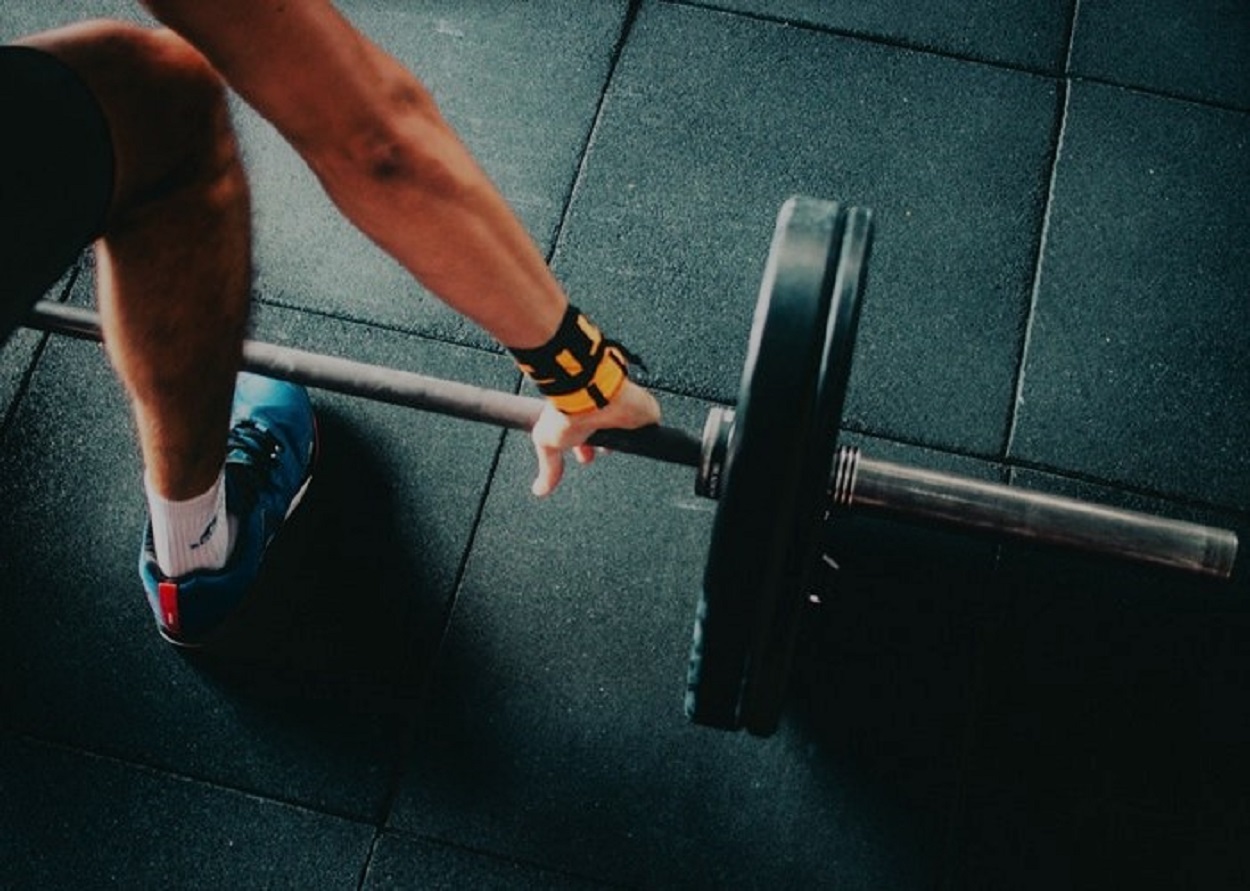In short, no. The thing about fasted training is that there is no evidence suggesting it has any benefits. There is little training and/or fat loss benefit to fasting in general, and most of the benefits of fasting can be explained by the fact that it helps some trainees lose weight via a caloric deficit because it’s easier to eat less when you’re restricting your feeding window. You certainly can lift while fasting. But should you?
There is research suggesting that fasting might help you trick your body into more fat loss at a smaller caloric deficit, perhaps by tricking your body into thinking that you’re eating less than you’re actually eating (by eating it within a limited period of time), but that data is, as I say, limited.
On the flip side, there is more data suggesting that training in a fasted state is deleterious to strength gains and hypertrophy. Regular protein intake, in particular, is important for ongoing protein synthesis, which is primarily why Martin Berkhan suggests that clients take several doses of BCAAs to boost protein synthesis, without tripping the threshold for insulin activity.
The point behind BCAA intake is that the body requires certain amino acids, like leucine, to trigger the desired effect pre- and post-workout, and you’d need a lot more whey to achieve the same effect, which would mean a lot more calories, thus ending the fast.
There’s nothing wrong with intermittent fasting, particularly if it helps you stick to your dietary goals. But if you do fast, I suggest working out within your feeding time (i.e. in the afternoon). If you must train in the morning, I would ask you to reconsider your feeding window, moving it to stop eating earlier in the day (before sundown), so you can have a small meal sometime before you start training.
Why Is Fasted Training Bad for Strength Gains?
I’ll be the first to point out that there isn’t a ton of research on whether or not you should lift while fasting. But the research we do have isn’t very favorable towards fasted training for strength. There is an argument to be made that fasted training can potentially increase adaptation for cardio, specifically for the aerobic energy systems in our cells.
The reasoning being that if you do low-intensity work, like a long jog, in a low-glycogen state (i.e. your muscles have low stores of glycogen at the time, as a result of a low-carb or fasted state), you may see better adaptations in the way your cells continue to produce energy (in other words, you become more energy efficient).
Studies that have attempted to measure performance in resistance training during a fed and fasted state generally conclude that training while fasted leads to worse performance in compound and strength exercises, which in turn will cause fewer gains (because fewer repetitions = lower volume, and so on). Some studies note that there are no significant differences.
Muscle and Glycogen
Conventional wisdom tells us that training for strength in a fasted state is a bad idea because our muscles rely on glycogen stores as energy. Bigger muscles tend to have bigger glycogen stores, which are stored in the sarcoplasm of our muscle fiber.
These glycogen stores are immediately available during intense physical activity, providing energy as it’s needed. The importance of a post-workout meal is to restore these glycogen stores, while the protein in post- and pre-workout meals is meant to signal protein synthesis. There are also more studies suggesting that a high-carb pre-workout meal leads to better strength performance.
In Conclusion
Is any of this conclusive? No. There are no peer-reviewed or double-blind studies, no large sample sizes, and little data in general. There are way too many factors at play to suggest that being fed is the key to getting stronger or bigger – your hormones might adapt to fasting, muscles might continue to grow despite lower glycogen stores, you might be relying on a different fuel source, and so on. The idea that you burn fat while training fasted has been called into question, but more research is needed.
To really test fasted training, we’d need a large sample of strength sports athletes to train in a fasted state for a period of at least a few weeks, to account for any potential adaptations, and pit their progress against a group of strength sports athletes training in a fed state, with the same volume and intensity.
But based on what we do have, I wouldn’t recommend that you lift while fasting. The differences aren’t major if there are any at all, but it’s a “better safe than sorry” thing. At best, training in a fasted state is no different than training after eating, and you will adapt to fasting. If you’re training at high intensity, especially if you’re trying to peak for a meet, I really don’t think fasting is a great idea. You want as much energy available for your muscles as possible, and there’s no research testing fasted vs. fed training in high-intensity resistance training.
If, however, in your experience, you feel stronger when you lift while fasting, then, by all means, go ahead. Again, we don’t have enough research to dispute that.





